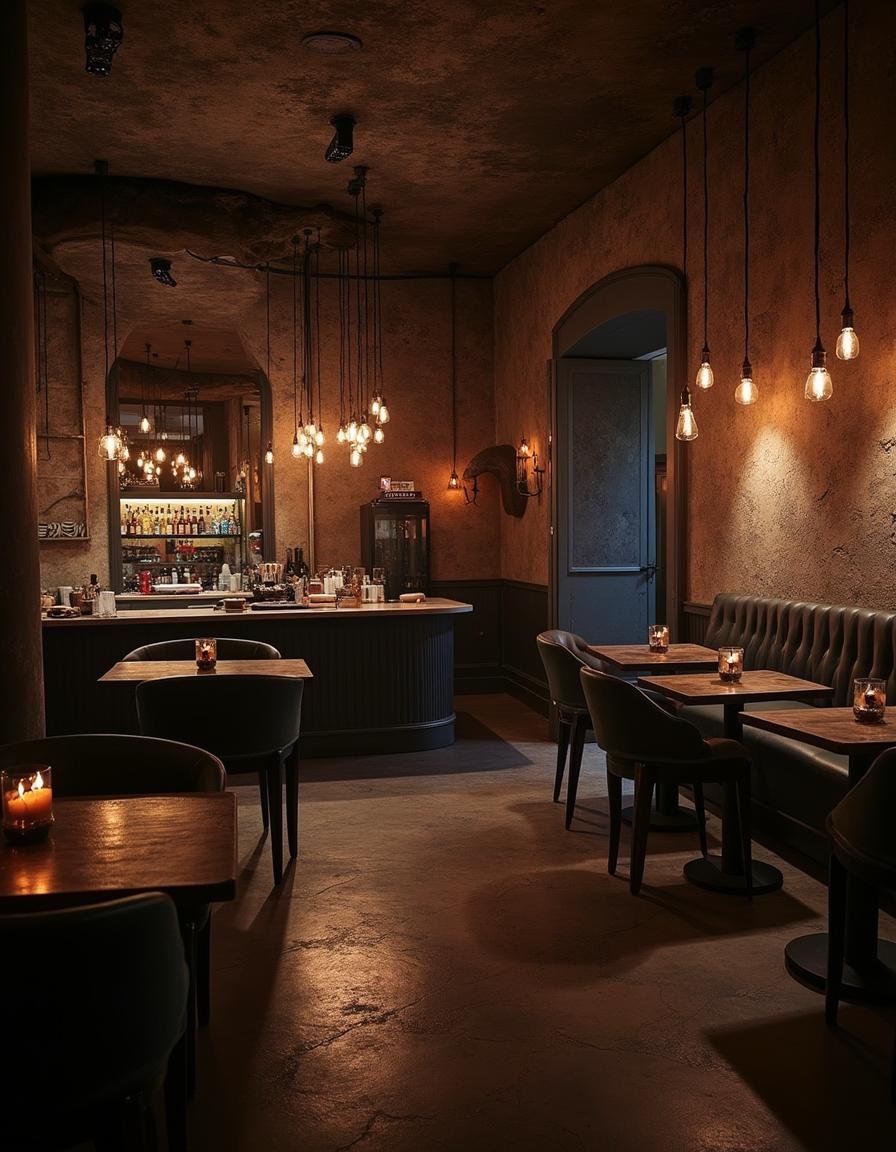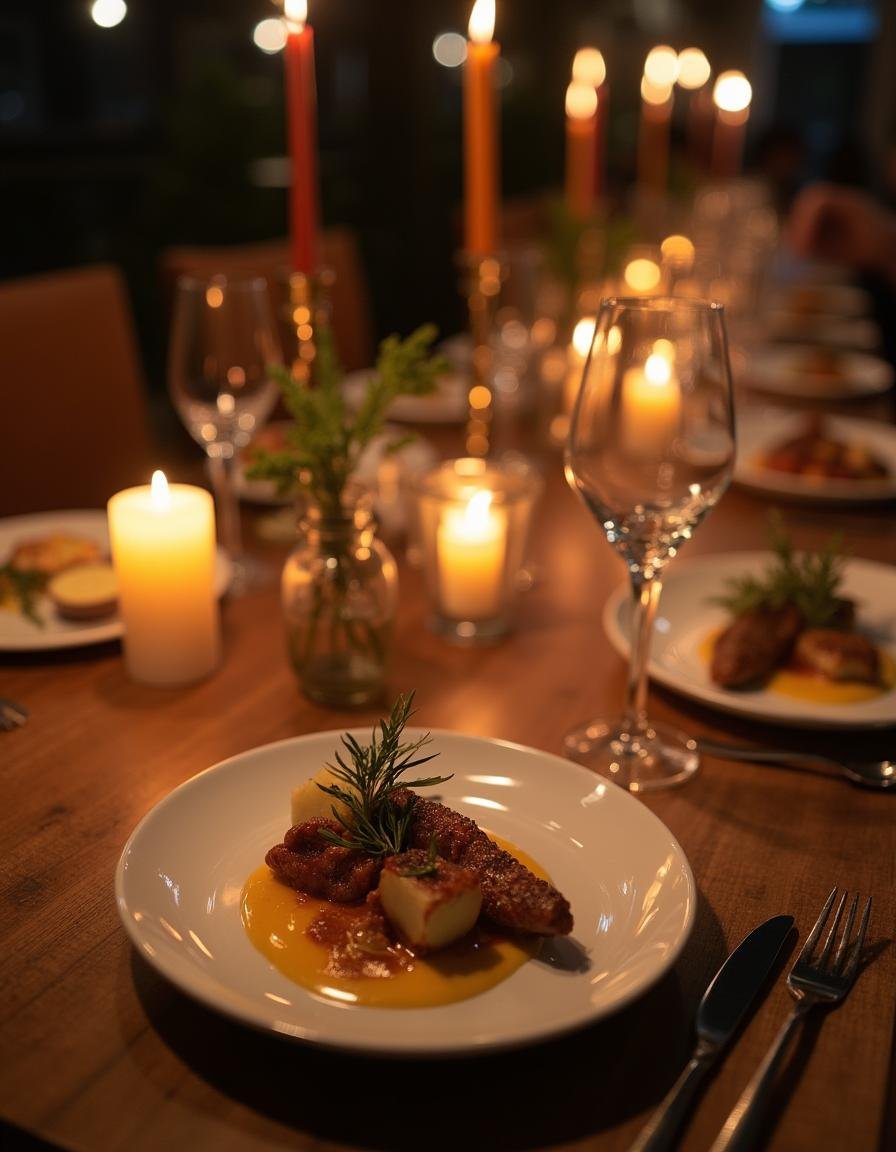
Core Services
Luxury Hospitality Concept & Brand Development
Transform vision into an iconic destination.
Developing a luxury hospitality concept and brand requires more than just aesthetics—it demands a holistic vision that seamlessly integrates identity, experience, and market appeal to create a destination that is both desirable and financially viable. Our approach is built on five key steps that ensure a hospitality concept is visionary, experience-driven, and strategically positioned for long-term growth.
Phase 1: Concept Creation & Thematic Development
Every world-class hospitality project begins with a strong concept that sets it apart. This phase establishes the story, purpose, and experience that will shape the entire project. A well-defined thematic foundation ensures that the property is not just a space, but a destination with a compelling identity that resonates with guests.
We focus on:
- The core identity of the property: Its unique narrative, defining elements, and guest promise.
- The architectural inspiration and design language: A curated blend of heritage, location, and innovation.
- Signature atmosphere: How the property will look, feel, and interact with its surroundings.
This foundational work becomes the blueprint for all future branding, design, and operational decisions.
-
Concept Storyline: A detailed narrative defining the emotional and experiential foundation of the brand.
Thematic Framework: Development of a clear thematic vision that reflects cultural, historical, or contemporary influences.
Signature Guest Promise: The defining experience that sets the property apart—why guests will choose this destination.
Mood Board & Aesthetic Inspiration: Curated visual inspiration for materials, textures, colors, and spatial design.
Architectural & Design Language Direction High-level architectural influences, layout concepts, and material suggestions.
Experience Pillars: Outlining the key experiential elements that will guide the guest journey.
-
Duration: 2-3 weeks
Week 1: Concept Research & Initial Development
Week 2: Storyline & Thematic Definition
Optional Week 3: Additional Refinements
-
A strong thematic foundation ensures that:
The property is memorable and distinctive from competitors.
Future branding, guest experience, and design align with the core vision.
The entire project maintains consistency across physical and digital experiences.
Investors, partners, and stakeholders have a clear concept to buy into from the beginning.
Phase 2: Brand Identity & Market Differentiation
A brand is more than a logo—it’s the DNA of a hospitality experience. We define how the brand will communicate visually, emotionally, and experientially by developing:
We focus on:
- Creating immediate recognition through a strong visual and verbal identity.
- Evoking emotion and engagement, making guests feel connected to the space.
- Positioning the property competitively by defining what makes it unique in the market.
This phase builds a foundation for marketing, guest experience, and digital presence, setting the stage for long-term brand equity and growth.
-
Brand Strategy & Positioning: Defining the brand's personality, guest appeal, and differentiation strategy.
Visual Identity Guide: A comprehensive guide with logo variations, typography, brand colors, and design elements.
Brand Messaging Framework: Developing the tone of voice, key messaging, and storytelling structure for marketing and guest communication.
Signature Brand Elements: Designing key recognizable brand touchpoints, such as custom typography, iconography, or monograms.
Competitive Market Analysis: Researching competitors to identify positioning opportunities that give the brand a unique edge.
Tagline & Value Proposition Development: Creating a memorable tagline and compelling guest value proposition to drive brand recall.
-
Duration: 2-3 weeks
Week 1: Brand Foundation & Market Research
Week 2: Brand Identity Development & Refinement
Optional Week 3: Adjustments & Client Refinements
-
Establishes the brand’s DNA, making it easier to communicate and market the property.
Ensures consistency across all guest touchpoints, from the website to on-site signage.
Differentiates the property in a competitive market, helping attract the right audience.
Provides a scalable brand foundation that allows for expansion and multi-property cohesion.
Phase 3: Guest Experience Mapping & Signature Touchpoints
A memorable hospitality experience isn’t just about a beautiful space—it’s about how guests feel at every interaction. This phase is dedicated to crafting intentional touchpoints that create deeper emotional engagement, loyalty, and word-of-mouth marketing.
A well-designed guest experience should:
- Tell a cohesive story that makes guests feel part of something unique.
- Engage multiple senses, making the experience immersive and unforgettable.
- Foster personal connection, ensuring that guests feel valued and appreciated.
This phase builds a framework for experiential programming, sensory design, and guest interaction strategies, turning one-time visitors into long-term brand advocates.
-
Guest Journey Blueprint: A detailed step-by-step map outlining the entire guest experience from pre-arrival to post-departure.
Signature Rituals & Programming: Designing customized on-property experiences, such as welcome rituals, local cultural integrations, or exclusive guest perks.
Sensory Design Strategy: Developing multisensory experiences, including custom scents, soundscapes, lighting strategies, and texture-rich material selections.
In-Room & Common Area Guest Touchpoints: Identifying key guest interaction zones and crafting memorable moments (e.g., personalized in-room notes, branded keepsakes, or interactive design elements).
Service & Interaction Guidelines: Establishing hospitality service standards to create a consistent guest experience across all team interactions.
Emotional Engagement Triggers: Mapping out psychological and emotional touchpoints that create a sense of belonging and connection.
-
Duration: 3-4 weeks
Week 1: Guest Experience Research & Mapping
Week 2: Signature Rituals, Service Design & Sensory Mapping
Week 3: Experience Refinement & Brand Alignment
Optional Week 4: Testing & Adjustments
-
Drives guest retention and word-of-mouth marketing by creating moments worth sharing.
Encourages brand loyalty by making each stay feel unique and intentional.
Enhances perceived value, allowing for premium pricing and longer stays.
Creates a seamless, immersive experience that differentiates the property from competitors.
Phase 4: Scalable Concept Development for Expansion
A luxury hospitality concept should not only be successful at its first location—it should be scalable, adaptable, and investment-ready. This phase ensures that the property’s identity, experience, and business model can be replicated across multiple locations or evolved into a franchise-style expansion while maintaining authenticity and exclusivity.
A well-structured scalable concept should:
- Ensure consistency across multiple properties, regardless of location.
- Allow for flexibility and adaptation while preserving the brand's core identity.
- Be attractive to investors, developers, and strategic partners, making expansion seamless.
This phase builds a blueprint for future growth, ensuring the concept is designed not just as a one-off property, but as a long-term, scalable business opportunity.
-
Brand Scalability Playbook: A comprehensive guide outlining how the brand can be expanded, replicated, or franchised.
Multi-Property Consistency Strategy: Ensuring that brand values, design identity, and guest experience remain consistent across all locations.
Flexible Experience Models: Outlining different guest experience models for various property types (e.g., urban boutique hotel vs. countryside retreat).
Expansion Blueprint: A structured plan for rolling out additional properties, covering location strategy, investment planning, and growth potential.
Investor & Partnership Readiness Framework: A strategic roadmap showcasing the concept’s scalability to attract investment or brand collaborations.
Operational Adaptability Guide: A framework ensuring staffing, service models, and backend operations remain streamlined across multiple locations.
-
Duration: 2-3 weeks
Week 1: Scalability Research & Initial Framework
Week 2: Expansion Blueprint & Growth Strategy
Optional Week 3: Finalization & Investor Readiness Strategy
-
Ensures future growth potential, allowing the brand to expand without losing authenticity.
Creates a roadmap for investors, making the concept more attractive to funding partners and developers.
Standardizes brand and operational elements, ensuring consistency across multiple locations or varied hospitality models.
Allows for flexibility, adapting to different markets while maintaining a recognizable, premium identity.
Phase 5: Integrated Digital & Physical Brand Ecosystem
In today’s hospitality landscape, a brand is not just about the physical space—it must have a strong online presence and seamless guest communication. This phase ensures that the brand experience is cohesive across all touchpoints, from signage and in-room branding to website design and social media presence.
A well-integrated digital and physical brand ecosystem should:
- Ensure brand recognition across all guest interactions, from booking to check-out.
- Create a seamless guest experience between digital touchpoints and on-property branding.
- Enhance marketing and direct booking conversions, reducing reliance on third-party platforms.
This phase ensures that the hospitality brand is strong both onsite and online, blending real-world and digital branding into a unified, premium experience.
-
Physical Branding & Environmental Design Guide: Creating a cohesive physical brand presence, including signage, guest materials, key cards, and in-room collateral.
Website & Booking Platform Optimization: Ensuring a visually aligned, conversion-focused digital presence that drives direct bookings and guest engagement.
Social Media Branding Strategy: A guide to maintaining a consistent brand identity across Instagram, Facebook, LinkedIn, and emerging platforms.
Branded Communication Templates: Professionally designed templates for guest welcome emails, pre-arrival messaging, and post-stay follow-ups.
Content & Storytelling Framework: Guidance on digital storytelling, including brand tone, photography guidelines, and video content direction.
Guest Feedback & Reputation Management Strategy: A structured approach to collecting and leveraging guest reviews to enhance credibility and guest trust.
-
Duration: 5-6 weeks
Week 1: Digital & Physical Brand Assessment
Week 2: Digital & Physical Branding Framework Development
Week 3-5: Implementation Strategy & Testing
Optional Week 6: Finalization & Brand Guide Delivery
-
Strengthens brand consistency, making the property recognizable across all platforms.
Increases direct bookings by enhancing website usability and online presence.
Improves guest experience by aligning digital and on-property communication.
Enhances reputation management, making it easier to attract premium guests and repeat visitors.





